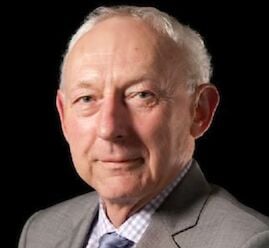All we can change is our future. What we do, how we act, creates our future and affects the futures of others. Studies of humanity’s relationships with the future are found in a variety of disciplines, including the human, social and economic aspects of sustainable development and learning. This Chair is striving to help people and organisations imagine and navigate the realisation of their sustainable development dreams.
The work of this Chair
How we think about the future influences how we act today; what is important to us, what we think is possible and hence what we aspire to. The Chair in Responsible Foresight for Sustainable Development was inspired by a long-term collaboration with UNESCO’s work on Futures Literacy but is shaped by the interests and calling of colleagues at the Lincoln International Business School.
In its programme of Futures Literacy, UNESCO recognises that the capacity of people and institutions to “use the future” in constructive and proactive ways contributes to human flourishing. As chairholder in responsible foresight for sustainable development, Professor Ted Fuller collaborates with global partners to help us reframe our futures, to imagine possible transformations and to plan specific actions. As a group of international academics, they are using their unique skills and knowledge to solve the problem of predicting future uncertainties, achieving sustainable development goals and leaving no one behind. This requires the dedication to imagine, aspire and act in order to create positive futures and see the world in different ways.
The Chair is propelled by the energy and commitment of the UNESCO Chair group members to their vast research, education and capacity building studies.
About the Chair Lead

Professor Fuller has carried out research in the areas of Foresight, Anticipation and Emergence as part of the Lincoln International Business School since 2015. Having started his first business at 19, Ted spent nearly twenty years at DUBS (Durham University Business School) and established two research centres; one in Knowledge Systems and another in Foresight Research. At the University of Lincoln Ted has, in his time, been Head of the Business School, Faculty Director of Research and Chair of College of Social Science Committees.
Now an active member of the UNESCO network on Futures Literacy, Professor Fuller has made several presentations to international conferences since the founding of the Chair to develop collaborative research on ethics and responsibility in anticipatory social systems.






